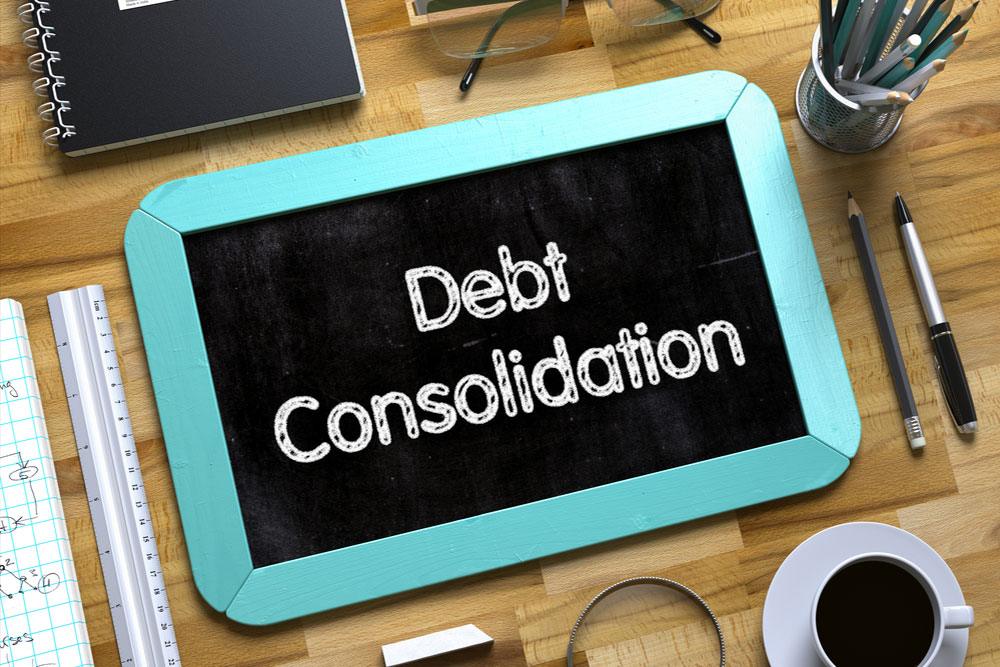Comprehensive Guide to Accelerating Credit Card Debt Repayment and Achieving Financial Freedom
This comprehensive guide offers proven strategies to eliminate credit card debt efficiently, including debt prioritization, consolidation, budget creation, and negotiation tips. Learn how to pay off debt faster and achieve financial freedom with disciplined habits and expert advice.

Comprehensive Guide to Accelerating Credit Card Debt Repayment and Achieving Financial Freedom
In the United States, credit card debt has become a significant financial challenge, with many households carrying balances exceeding $10,000. This widespread issue impacts millions of Americans and underscores the importance of effective debt management strategies. While repaying credit card debt can seem overwhelming, adopting a strategic, disciplined approach can dramatically reduce your debt burden and help you regain financial stability. This detailed guide offers practical, actionable steps to eliminate credit card debt efficiently and sustainably, empowering you to take control of your financial future.
Create a Tailored Payment Plan
One of the most critical steps in debt reduction is establishing a personalized payment plan. If you own multiple credit cards, it’s essential to prioritize payments based on certain factors. Typically, focusing on the credit card with the highest interest rate first — known as the avalanche method — allows you to reduce the amount paid in interest over time. Once the highest-interest debt is paid off, you can redirect those payments to the next highest-interest card. Alternatively, some prefer the snowball method—paying off the smallest balances first to build momentum and motivation. Whichever strategy you choose, consistency and discipline are key to speeding up debt elimination. Having a clear plan helps you stay focused and avoid unnecessary expenditures that can prolong your debt cycle.Analyze Your Debts and Set Realistic Goals
Understanding your current debt situation is fundamental. List all credit card balances, interest rates, and minimum payments. With this information, you can set achievable targets—for example, paying off a specific card within six months. The goal should be specific, measurable, attainable, relevant, and time-bound (SMART). Increasing your monthly payments beyond the minimum can significantly reduce your debt faster. For instance, if your minimum payment is $50, try to pay $100 or more whenever possible. Doubling down on payments reduces the principal faster, which translates into lower total interest paid over the life of the debt. Additionally, creating milestones helps track progress and motivates you to stay committed to your repayment journey.Consolidate Debts for Simpler Management
When managing multiple debts, consolidation can offer a strategic advantage. By transferring balances to a single account, you simplify your repayment process and reduce confusion. A popular method is utilizing a 0% balance transfer credit card, which offers an introductory period without interest—allowing you to pay down debt interest-free during that period. Be sure to pay attention to transfer fees and the duration of the promotional rate. Alternatively, taking out a lower-interest personal loan can also serve as a consolidation tool, potentially lowering your overall interest costs and simplifying your monthly payments. Proper consolidation can accelerate your debt payoff and reduce the stress associated with managing multiple creditors.Pay More Than the Minimum and Stay Consistent
Paying only the minimum amount prolongs your debt and accrues additional interest, making it harder to eliminate debt efficiently. To expedite the process, aim to pay more than the minimum each month. Consistent extra payments can significantly cut down your repayment period and reduce the total interest paid. Automatic payments are an excellent way to ensure regular contributions without the risk of missing deadlines. Automating your payments also helps reinforce disciplined financial habits, reducing the temptation to skip or delay payments. Over time, these small sacrifices will lead to substantial savings and bring you closer to becoming debt-free.Automate Your Payments for Better Discipline
Automation plays a pivotal role in maintaining a disciplined repayment plan. By setting up automatic payments, you ensure that your credit card balances are paid on time each month, preventing late fees and penalty interest rates. Before automating, verify that your bank account has enough funds to cover these payments to avoid overdrafts. Automated payments eliminate the risk of forgetting due dates and help establish a consistent payment schedule—crucial for building a positive credit history and favorably influencing your credit scores. Besides convenience, automation is a powerful tool to stay committed to your debt repayment goals.Negotiate with Creditors for Reduced Rates and Fees
If you encounter financial setbacks such as job loss, illness, or other emergencies, don’t hesitate to communicate with your creditors. Many lenders offer hardship programs that can reduce your interest rates, waive late fees, or develop alternative repayment arrangements. Maintaining a good credit history can strengthen your bargaining position. Negotiating lower interest rates promptly can save you money and make your debt more manageable. Remember, creditors typically prefer to work out feasible payment options rather than pursue collection actions, which are costly and time-consuming. Open communication and proactive negotiation can significantly ease your financial burden during tough times.Seek Professional Help if Necessary
When debt becomes overwhelming, consulting a certified credit counselor or debt management professional can be highly beneficial. These experts can assess your financial situation and provide tailored advice. They may negotiate with creditors on your behalf, secure lower interest rates, or help establish a manageable repayment plan. In rare cases, debt settlement programs can reduce your total debt through negotiated agreements. If all else fails, bankruptcy might be a last resort to discharge debt and start anew. While bankruptcy has long-term repercussions, it can provide immediate relief and a fresh start for those unable to manage their debts otherwise. Seeking professional assistance ensures you leverage expert insights to make informed decisions about your financial health.Develop a Realistic Budget and Prioritize Expenses
Creating a comprehensive monthly budget is vital for effective debt management. Track your income and all expenses—utilities, groceries, rent, insurance, and other essentials. Identify areas where you can cut costs, such as dining out, entertainment, or subscriptions, and redirect those savings toward paying down debt. A disciplined budget helps prevent new debt from accruing and promotes savings, providing a cushion during emergencies. Reviewing your budget regularly ensures you stay aligned with your financial goals and adjust for changes in income or expenses. A well-planned budget not only speeds up your debt repayment but also fosters healthy financial habits that last a lifetime.




